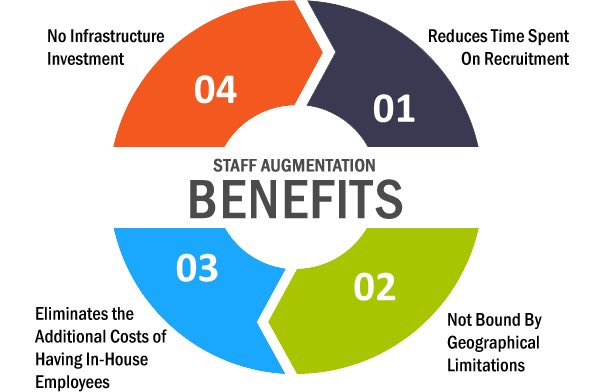A recruiter is an individual that helps connect employers with potential hires. Recruiters work to find qualified candidates for the employer’s job openings and match them with the company’s needs. Finding the right candidate is an essential step in building a successful business. To be a successful recruiter, there are several skills and qualities that you should possess.
Types of Recruiting
There are many different types of recruiters, each specializing in their area of expertise. For instance, corporate recruiters specialize in finding people for large companies and generally have very good contacts within those organizations. On the other hand, executive recruiters focus on finding high-level professionals for senior positions within a company.
There are also specialized recruiters such as legal, engineering, IT, and healthcare recruiters who focus on filling roles within those areas of expertise.
How Does Recruiting Work?
The recruitment process involves identifying potential candidates through job postings, networking events, online databases, or referrals from current employees. Once potential candidates have been identified, the recruiter must assess their qualifications and determine suitability for the role. This involves interviewing candidates and conducting background checks to ensure they meet the employer’s requirements. The recruiter must present the best candidates to the employer and negotiate salary offers on their behalf.
What is the recruiting process?
Recruiting involves several steps to identify, attract and hire qualified candidates. The basic process includes:
- Defining job requirements: This is the first step in headhunter recruitment, as it helps recruiters understand the type of candidate you’re looking for and how to target potential applicants effectively.
- Sourcing candidates: This can be done through various methods such as headhunter networks, job boards, social media platforms, or traditional methods such as print advertising and word-of-mouth referrals.
- Screening applicants: Recruiters then screen applicants against criteria such as experience, skillset, and education level to ensure they are suitable for the role.
- Interviewing candidates: Once the headhunter has determined which candidates are suitable, they will arrange in-person or virtual interviews to assess each candidate further.
- Making an offer: The headhunter will then negotiate with the chosen candidate on salary and other factors such as job requirements, benefits, and start date.
- Onboarding new employees: Finally, headhunters help onboard new hires by providing them with orientation information and training materials to ensure a smooth transition into employment.
Recruiters play an essential role in headhunting recruitment by ensuring employers can find qualified candidates quickly and efficiently. By following these steps, headhunters can ensure that the right people are hired for their clients’ roles promptly.
Overall, headhunter recruiters must stay up-to-date on industry trends and best practices to ensure their role’s success. Knowing the different types of headhunter recruiters and how headhunter recruitment works can help headhunters provide quality customer service throughout the entire recruitment cycle. With these strategies in place, headhunters can help employers find top talent quickly and efficiently.

What Makes A Great Recruiter?
Successful recruiters have qualities that set them apart from other professionals in their field, such as excellent communication, strong organizational skills, attention to detail, and the ability to think on their feet.
They should also be able to manage multiple tasks at once while still providing quality customer service during every step of the recruitment process. Finally, they must be passionate about helping others find meaningful employment opportunities that match their unique skill sets and career goals.
What is the difference between a headhunter and a recruiter?
The main difference between headhunters and recruiters is that headhunters are usually employed by a third-party organization or specialized recruitment firm to fill open positions for their clients.
On the other hand, recruiters may be internal employees of an organization who specialize in hiring within their own company.
Headhunters often have access to wider networks of potential candidates than recruiters do, as they typically deal with a larger number of job openings at any given time.
Additionally, headhunters have more experience in the industry and may be able to provide advice on salary negotiations or other aspects of the recruitment process.
Overall, headhunter recruiters must stay up-to-date on industry trends and best practices to ensure their role’s success. Knowing the different types of headhunter recruiters and understanding how headhunter recruitment works can help headhunters provide quality customer service throughout the entire recruitment cycle. With these strategies in place, headhunters can help employers find top talent quickly and efficiently.
Recruiting is time-consuming and requires careful consideration and attention to ensure success. Utilizing headhunter services can help both employers and candidates. Headhunters have the experience and industry knowledge needed to find top-level talent quickly and efficiently. Using effective sourcing techniques, headhunter recruiters can identify ideal candidates for roles that may otherwise be difficult to fill.
In summary, headhunting is an essential part of the hiring process that can help employers find qualified candidates quickly and efficiently. By understanding the types of headhunter recruiters and how headhunter recruitment works, headhunters can provide quality customer service throughout the entire recruitment cycle and help employers hire top talent promptly. Knowing the differences between headhunters and recruiters is also vital for any organization’s recruiting strategy.
Conclusion
Headhunter recruiters play an essential role in any organization’s hiring process by connecting qualified job seekers with employers who have open positions that need to be filled quickly and efficiently. It is important to understand all aspects of recruiting when searching for someone to fill this important role to ensure your team has the right person leading your efforts and helping you land top talent quickly and easily!
If you’re looking for an experienced headhunter recruiter for your team or business needs – consider Bondy Group LLC. We are here to help you reach your goals! Contact us today.
FAQs
What is the difference between hiring and recruiting?
Hiring is the process of selecting an employee and making a job offer while recruiting is the process of finding potential candidates for open positions. Recruiting includes identifying and sourcing qualified candidates, conducting interviews and assessing qualifications, negotiating offers, and onboarding new hires.
How long is a typical recruiting process?
The length of the recruitment process depends on the type of job and the number of candidates being considered. Generally, it can take anywhere from a few days to several weeks or months before a decision is made. The headhunter recruiter will work with the employer to establish expectations and timelines for each step of the process.
What skills are valuable in a recruiter?
Headhunter recruiters must possess excellent communication skills, strong organizational skills, attention to detail, and the ability to think independently.
They should also be able to manage multiple tasks at once while still providing quality customer service during every step of the recruitment process.
Finally, they must be passionate about helping others find meaningful employment opportunities that match their unique skill sets and career goals.
What are some common challenges recruiters face?
Recruiters often face challenges such as finding qualified candidates for specific roles, competing against other companies for top talent, and dealing with last-minute changes in job requirements. Additionally, they may struggle to maintain their standards while working within an employer’s budget or timeline constraints.
Finally, they must be capable of managing multiple tasks while providing quality customer service to both employers and job seekers.
What are the benefits of working with a recruiter?
Headhunter recruiters can provide employers with access to a much wider candidate pool than would otherwise be available and specialized knowledge of different hiring markets.
Additionally, they can help employers save time by sourcing and vetting potential candidates more quickly and efficiently than traditional methods. Finally, headhunter recruiters have the expertise to negotiate salary offers on behalf of employers and ensure that the best possible hire is secured for each position.
What are the golden rules of recruitment?
The golden rules of headhunter recruitment are to:
1. Never make assumptions
2. Focus on the candidate’s needs and career goals
3. Maintain a positive attitude and professional demeanor
4. Be honest and transparent throughout the entire process
5. Keep up with industry trends and best practices
6. Remain flexible when needed
7. Always provide quality customer service
Following these rules will ensure a successful headhunter recruitment process every time.
What are the three principles of recruitment?
The three principles of headhunter recruitment are:
1. Understand the job requirements and identify the right candidate for the role
2. Establish trust and respect with both employers and job seekers by providing quality customer service
3. Strategize your efforts to ensure that the most qualified candidate is hired on time.
By following these principles, headhunter recruiters can successfully find and hire top talent quickly and efficiently.
Contact Bondy Group LLC today to find out how our experienced headhunter recruiters can help you reach your goals!
What are the six elements of recruitment strategy?
The six key elements of headhunter recruitment strategy are:
1. Research: Gather data on the target market and potential candidates for the job
2. Source: Utilize both traditional and innovative sourcing techniques to find qualified candidates
3. Screening: Vet applicants against criteria to ensure that only the most suitable are considered
4. Interview: Conduct comprehensive interviews to determine each candidate’s qualifications, skills, and abilities
5. Negotiate: Negotiate offers with employers while keeping the job seeker’s interests in mind
6. Onboarding: Provide a smooth transition into employment through onboarding processes such as orientation and training
By following these steps, headhunter recruiters can ensure that the right candidate is hired for the job in a timely manner.
What are the different types of recruiters?
There are several types of headhunter recruiters, including:
1. Internal Recruiters: These professionals work directly for a company to fill open positions internally.
2. Third-Party Recruiters: Also known as headhunters or staffing agencies, these recruiters search for candidates on behalf of employers and contract with them for a fee.
3. Career Coaches: These recruiters help job seekers identify their career goals and develop strategies to achieve them.
4. Executive Search Firms: These firms specialize in recruiting high-level executives and C-suite roles for organizations.
5. Contingency Recruiters: This headhunter works off commission by filling open positions for companies, taking a cut of the fee for successful placements.
No matter what type of headhunter recruiter you are, it’s essential to stay up-to-date on industry trends and best practices in order to ensure success.
What is a contingency search firm?
A contingency search firm is a type of headhunter recruiter that works on a commission basis. Employers typically hire these firms to find qualified candidates for open positions in exchange for a fee if the candidate is successfully placed.
This type of headhunter recruitment can be beneficial for employers as it allows them to outsource the sourcing and interviewing process while still having access to top-level talent. Contingency search firms generally focus on finding candidates who meet specific client criteria, such as skill level, experience level, or specific industry expertise.
Generally speaking, headhunters operating under a contingency model will have more resources available than headhunters working on an hourly or salary basis because they are incentivized to fill each position quickly.
What is a retained search firm?
A retained search firm is a type of headhunter recruiter that works on a fee basis. Unlike contingency search firms, headhunters operating under a retained model are typically paid up front for their services instead of being compensated only if the candidate is successfully placed.
This type of headhunter recruitment can benefit employers as it allows them to have more control over the process and gain access to headhunters’ extensive networks. Generally speaking, headhunters operating under a retained model will have more resources available than headhunters working on an hourly or salary basis because time constraints do not limit them. Retained headhunters usually focus on finding candidates with specific qualifications and skillsets, making this type of headhunter recruitment ideal for employers looking for highly qualified talent. Additionally, headhunters working under a retained model are typically more involved in the recruitment process than headhunters working on a contingency basis. This can benefit employers as headhunters can provide valuable insight throughout the entire recruiting cycle.
Ultimately, headhunter recruitment is an essential part of the hiring process that can help employers find qualified candidates quickly and efficiently. Employers should consider both types of headhunter recruiters when deciding how to utilize headhunter services in their best-recruiting strategy. By understanding different types of headhunter recruiters and how headhunter recruitment works, headhunters can provide quality customer service throughout the entire recruitment cycle and help employers hire top talent on time.
What is an executive search firm?
An executive search firm is a type of headhunter recruiter specializing in recruiting executives and other high-level professionals. These headhunters typically have extensive networks and resources to help them identify qualified candidates for senior-level positions. Executive headhunters are generally retained by employers on either a fee or commission basis, depending on the employer’s needs. This type of headhunter recruitment can be beneficial for employers as it allows them to outsource the sourcing and interviewing process while still having access to top-level talent. Additionally, executive headhunters typically provide more personalized service than headhunters operating on an hourly or salary basis because time constraints do not limit them. Ultimately, headhunter recruitment is an essential part of the hiring process that can help employers find qualified candidates quickly and efficiently. By understanding executive headhunters and how headhunter recruitment works, headhunters can provide quality customer service throughout the entire recruitment cycle and help employers hire top talent on time.




